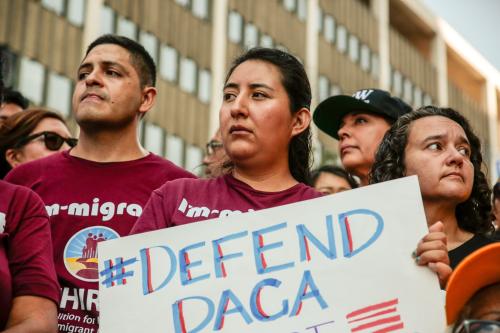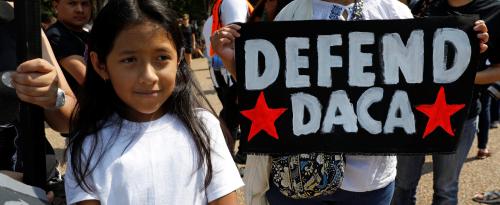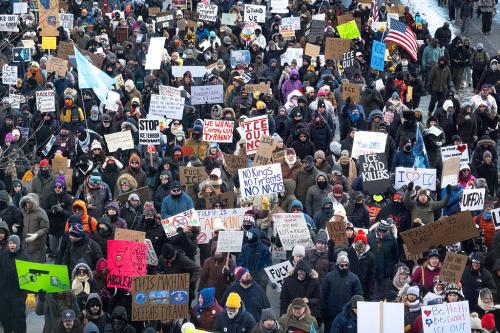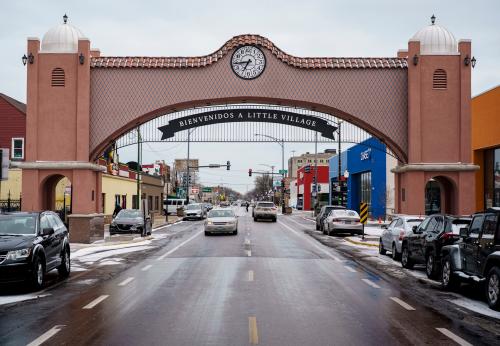After a highly scrutinized showdown with 10 attorneys general, the Trump administration—through U.S. Attorney General Jeff Sessions—decided to pull the plug on the Deferred Action for Childhood Arrivals program, or DACA, which protected undocumented people who entered the country as children under the auspices of an adult.
To rationalize ending DACA, Sessions leaned on the Constitution and rule of law argument.
“No greater good can be done for the overall health and well-being of our Republic, than preserving and strengthening the impartial rule of law,” Sessions read from his prepared remarks on September 5. He cited the Constitution as the basis for “an orderly, lawful wind down” including the cancellation of Obama’s executive order that originally authorized the program. “It was inconsistent with the Constitution’s separation of powers,” Session recited, without mentioning how our venerable document has not always comported with justice.
The precedent of having full-fledged members of society–people who have demonstrated their commitment to a community–but are not full-fledged citizens should have us return to the Constitution.
Undocumented immigrants share a historical bond with blacks and women who understand what it means to be an unrecognized member of the United States as second-class citizens. The phrase second-class citizen doesn’t neatly fit undocumented immigrants as it did blacks and women, who were only citizens by default. It was the Constitution that deemed enslaved blacks three-fifths a citizen, and denied women the most fundamental of rights, including the right to vote. Blacks and women may not have been “undocumented” but they were certainly not recognized nor rewarded by citizenship until much later.
Citizenship has an ugly history of lagging behind people other than white men.
Clearly, we have an immigration problem. Our country has been able to house, employ, collect taxes, worship with, and socialize with approximately 11 million undocumented immigrants since the late 2000s, and that steady number came after a solid climb from 3.5 million in 1990.
Now after nearly three decades of failing to create an immigration system that reflects our country’s true labor needs, Trump and Sessions seeks to fix it with the threat of deportation. Let’s be clear: they want to be able to kick people out who didn’t come to the United States under their own volition. DACA is tailored to provide relief for the children in jeopardy. The children of people who brought them illegally into the country are not criminals. Employers, on the other hand, clearly should bear some blame, but it’s easy to target people you don’t believe belong and are not protected by citizenship.
The battle now goes to Congress.
According to Sessions, dismantling DACA “will enable DHS to conduct an orderly change and fulfill the desire of this administration to create a time period for Congress to act—should it so choose. We firmly believe this is the responsible path.”
The responsible path is what it has always been: to create an immigration system that is not racist, sexist, xenophobic, and in the current context, anti-Muslim.
Ending DACA is no more a fix for the immigration program than Jim Crow was to Reconstruction. Many of our ancestors couldn’t lean on the Constitution to gain our citizenship status, but we did make it work for us. The battle now goes to Congress.
The Brookings Institution is committed to quality, independence, and impact.
We are supported by a diverse array of funders. In line with our values and policies, each Brookings publication represents the sole views of its author(s).







Commentary
Whose citizenship does the Constitution protect?
September 5, 2017